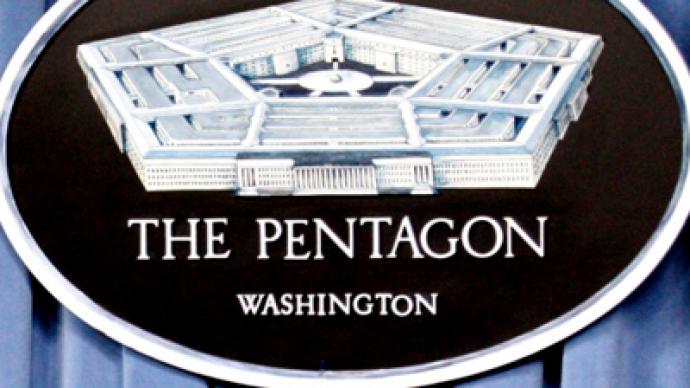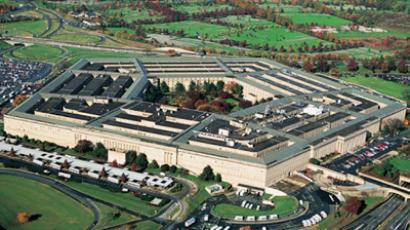Pentagon gets the go-ahead for offensive cyberwars

Within the 680 pages of the Congress-approved National Defense Authorization Act for Fiscal Year 2012 are a lot of provisions that the American public might be peeved over if they could comb through all the contents.
In addition of establishing the ability for the president to detain and torture his own citizens indefinitely is also a tiny clump of text which will provide for the commander-in-chief to, once and for all, legally attack the enemies of America over the Internet.Under the controversial defense spending act that is awaiting approval from US President Barack Obama, lawmakers can give the Executive Branch the go-ahead to wage a war over the Web against any nation deemed a threat to America. Specifically, Section 954, “Military Activities in CyberSpace,” states, “Congress affirms that the Department of Defense has the capability, and upon direction by the president may conduct offensive operations in cyberspace to defend our nation, allies and interests.”The White House originally said that it would veto NDAA FY 2012 if it made it off Capitol Hill, but only days before it left Congress, Press Secretary Jay Carney told the media that the president’s advisers will no longer recommend such action. Thus, the inking of Obama’s name to the document will not just give him the power to pursue computer attacks, but also the ability to detain American indefinitely, employ tactics of torture on prisoners and send his own citizens to foreign institutions for prosecution.The US has been criticized since the early days of the Information Age over alleged cyber crimes against foreign powers. While there has been no legislation keeping Congress from conducting a battle as such, the passing of NDAA FY2012 will insure that any future fights over of the Web will be spared opposition of those crying foul.Now, says SANS Institute Director Alan Paller, the Pentagon has “explicit permission to do what needs to be done.” To the Federal Times, however, Paller adds that this also afire “what has been done” by America in the past.While tensions tighten between the US and Iran over the foreign state’s possible nuclear program, some insiders have already suggested that a cyberwar has begun between the nations. America has already been blamed by many for the Stuxnet computer virus that infiltrated Tehran’s networks last year, and in recent weeks the attack on the Pentagon’s drone aircraft program that has left two multi-million dollars crafts out of America’s control has been considered the effects of a cyber attack from Iran. Regardless of if this battle between the countries originated overseas or not, President Obama can now legally blast through Iran’s blurbs of binary to conduct a cyberwar once allowed by Congress.As with wars waged with bombs and bullets, the commander-in-chief will still need approval from the House and Senate before going to battle, as outlined in the War Powers Resolution Act of 1972. Only this year, however, President Obama directly violated the legislation and deployed American forces into Libya to aid in a NATO coalition to take down then-leader Muammar Gaddafi. In June, House Speaker John Boehner went after Obama by sending a letter stating, “the House is left to conclude that you have made one of two determinations: either you have concluded the War Powers Resolution does not apply to the mission in Libya, or you have determined the War Powers Resolution is contrary to the Constitution. ““The House, and the American people whom we represent, deserve to know the determination you have made,” added Speaker Boehner. Those hostilities, which Obama insisted did not constitute a war, went on for months and yielded around 145 missile strikes.Even then, it was revealed that the president was considering launching a cyberwar with Libya to overthrow Gaddafi. An Obama administration official speaking under condition of anonymity to The New York Times in October said that the US has cyber abilities within its arsenal, but said they are “like the Ferrari that you keep in the garage and only take out for the big race and not just for a run around town, unless nothing else can get you there.” The official also said that the administration contemplated a computer attack on Osama bin Laden before the raid and execution that took down the ex-al-Qaeda leader in May of this year. Defense Secretary Leon Panetta told a Capitol Hill hearing in July that “The next Pearl Harbor we confront could very well be a cyber attack that cripples our power systems, our grid, our security systems, our financial systems [and] our governmental systems.” This time, America is legitimatized the use of taking the offensive, so the next terrorist attack could be compliments of Uncle Sam.“It is going to take both defensive measures as well as aggressive measures to deal with it,” added Panetta at the time.














